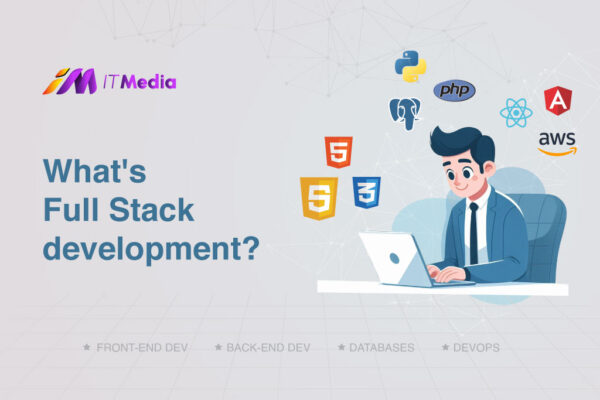
Full stack development refers to the complete skill set required to work on both the client and server sides of an application.
It involves handling everything from user interfaces to server-side scripting and database management.
In an age where a seamless digital experience is paramount, full stack developers are in high demand.
Evolution of Full Stack Development
Historical Context
Full stack development has evolved significantly since its inception. Initially, developers focused on front-end or back-end tasks.
However, as technology has improved, so has the demand for versatile developers capable of managing the entire stack.
Shifting Trends
With the rise of agile methodologies and DevOps practices, the role of a full stack developer has become even more critical. Adapting to changing trends is now a hallmark of successful developers.
Key Components of Full Stack Development
Front-End Development
Front-end development involves creating user interfaces and ensuring a seamless user experience. It includes technologies like HTML, CSS and JavaScript.
Back-End Development
Back-end development deals with server-side logic and database management. It involves languages like Python, Ruby, and PHP and frameworks like Node.js and Django.
Database Management
An important part of full stack development, database management requires expertise in SQL or NoSQL databases depending on project requirements.
Server Management
Full stack developers must understand server management, including implementation, maintenance, and optimization for efficient application performance.
Skills Required for Full Stack Development
Programming Languages
Proficiency in multiple programming languages such as JavaScript, Python, and Java is essential for full stack developers.
FrameworksF
Understanding and using frameworks like React, Angular, Express and Flask streamlines the development process.
Problem-Solving Skills
Full stack developers need strong problem-solving abilities to address challenges across the entire development spectrum.
Benefits of Full Stack Development
Versatility
Full stack developers can transition seamlessly between front-end and back-end tasks, providing a holistic approach to development projects.
Efficient Project Management
The ability to oversee the entire development process enables full stack developers to manage projects more efficiently.
Cost-Effectiveness
Hiring a full stack developer capable of handling various aspects of a project can be cost-effective for businesses.
Challenges in Full Stack Development
Learning Curve
Mastering both front-end and back-end technologies creates a steep learning curve, which demands dedication and continuous learning.
Keeping Up with Advancements
Keeping abreast of rapidly evolving technologies is a perpetual challenge for full stack developers.
Balancing Specialization and Generalization
Finding the right balance between specialization in specific technologies and generalization across the stack is a constant dilemma.
How to Become a Full Stack Developer
Educational Paths
A variety of educational pathways, including degree programs and coding bootcamps, can pave the way for a career in full stack development.
Online Resources
Online platforms offer a wealth of resources, from tutorials to interactive coding challenges, enabling aspiring developers to hone their skills.
Building a Portfolio
Building a strong portfolio showcasing projects across the development spectrum is crucial for aspiring full stack developers.
Future Trends in Full Stack Development
Stay up to date on newly developed technologies like artificial intelligence and blockchain, which will impact the future of Full Stack Development.
Study industry projections to help match your skill set with the changing demands of the tech industry.
Conclusion
To summarize, Full Stack Development is a dynamic field that requires versatility, continuous learning, and adaptability.
To succeed in this dynamic tech industry, accept the challenges, stay curious, and continually expand your skill set.
# FAQs
Is Full Stack Development only for experienced developers?
Full Stack Development is suitable for both beginners and experienced developers. The key is dedication and a willingness to learn.
Are there specific industries that benefit more from Full Stack Development?
Full Stack Development is versatile and applicable across various industries, including e-commerce, healthcare, and finance.
How long does it take to become a proficient Full Stack Developer?
The timeline varies, but with consistent effort and focused learning, one can become proficient within a year.
Do I need a formal education to become a Full Stack Developer?
While a formal education can be beneficial, many successful Full Stack Developers have also emerged from coding bootcamps and self-learning.
What is the future outlook for Full Stack Developers?
The demand for Full Stack Developers is expected to grow as businesses seek versatile professionals who can contribute to all aspects of development.